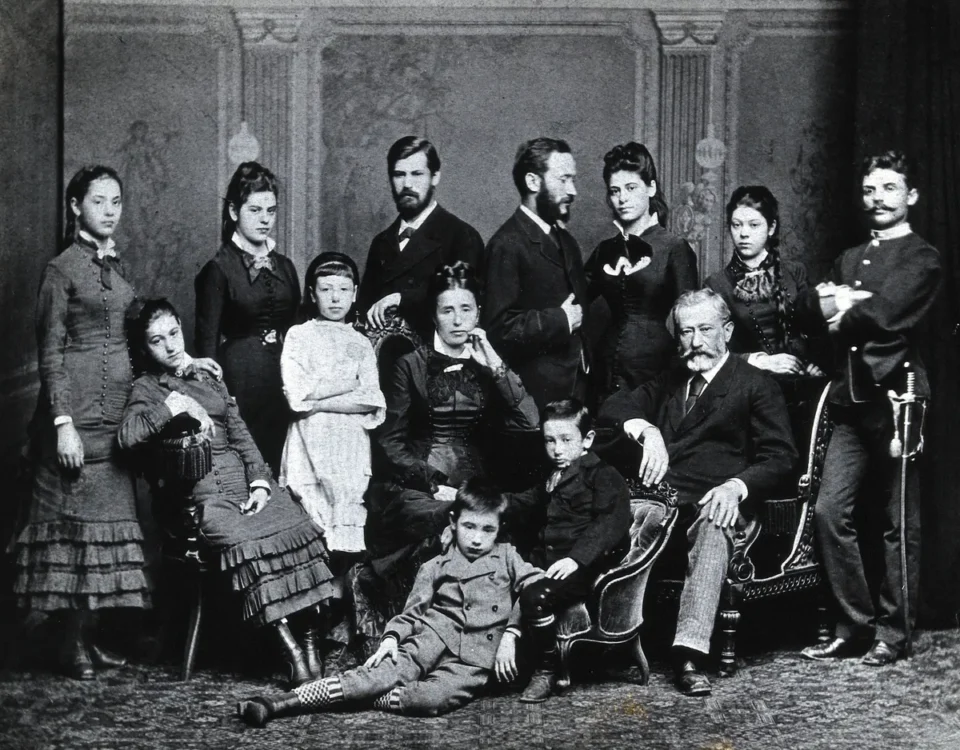
Balancing Faith and Medicine: Navigating Ramadan and Pre-Residency Prep
April 10, 2025
How to Choose a Medical Specialty: Key Factors and Insights for Aspiring Physicians
April 10, 2025Summary (TL;DR)
Maintain a consistent theme throughout, tying personal experiences (like hobbies or memorable moments) to your journey in medicine. Grab the reader’s attention early with a strong opening and sustain momentum with smooth transitions.
Limit feedback to a few trusted individuals to preserve your voice, and avoid clichés or overly formal tones. Tailor your statement to your specific residency field, address any shortcomings honestly but positively, and ensure your conclusion leaves a lasting impression.
Finally, review your statement multiple times for flow, grammar, and relatability while avoiding controversial topics or copying others’ styles. Use this opportunity to stand out and connect with program directors on a personal level.
After days of tears, nights of anguish, weeks of self-deprecation, and months of frustration—not to mention years of hard work and all the blood, sweat, and tears—you have arrived at one of the most daunting yet crucial tasks in your residency application process: writing your personal statement. Many applicants find this portion of the application particularly challenging, especially when English isn't their first language. However, with the right strategies, you can transform this challenge into an opportunity to shine. The following comprehensive guide combines insights from multiple sources to help you craft a compelling personal statement that stands out.
Make It Unique
One would think this would be the most obvious tip, but in an effort to make our personal statements residency and program-focused, we often lose a lot of ourselves in the process. Many of us focus on including what we perceive as "necessities," such as mentioning why we chose our specialty, the characteristics that make us special, or a story that helps us stand out from the crowd. These "requirements" can turn our personal statements into laundry lists rather than artistic pieces that give readers insight into who we are. So whether it be with an anecdote, an idea, or just a really strong opening sentence, make your personal statement yours!
Personal statements (PS) form an integral part of your residency application, with a citing factor of 78% by program directors according to NRMP data. If you are anything like me, you probably have half a dozen versions of it typed out, with every new draft looking more and more different from the others. So, how to write a perfect personal statement? Firstly, there is no 'perfect' PS. Treat personal statements like a piece of literature. Not everyone is going to like it. And that is okay. Personal statements are essential in helping you find like-minded people. PS acts as a filter to help programs find their perfect match.
Have and Maintain Your Theme Throughout Your Statement
Have an interesting encounter with your first patient? Are you a closet Dungeons and Dragons wizard in your spare time? Do you love to game or are you a martial arts specialist? There are ways to weave your stories into your writing as long as you commit to them and keep them relevant throughout your personal statement. One of my favorite ways to do this is to include or relate an element of each story within each paragraph of my personal statement. If I spoke about being a wizard, I'd speak about elements of being a wizard that also relate to being a physician. I'd speak about what I learned from playing Dungeons and Dragons or training in martial arts that lent to my becoming successful in my field. There are so many great ways to make each paragraph personal; all it takes is a little creativity.
Medicine is time-consuming, but it is not life-consuming. It is only a part of your life. So, talk about your hobbies, your experiences, your favorite food, etc. You can write about anything. PSs are like dating profiles: show yourself as a person. That said, don’t exclude medicine completely, it is still a part of who you are.
Grab the Reader’s Attention and Maintain Momentum
When you think about your favorite novels or pieces of writing, what comes to mind? We often say, "It was so good, I couldn't put it down!" And that is exactly what you want for your personal statement. You want your opening sentence to pique interest. You want your introductory paragraph to move in a way that prevents them from putting your personal statement down. And you want the rest of your personal statement to flow so smoothly that the momentum isn't lost somewhere along paragraph three. Too Long, Don't Read: if you're getting bored, then it means that you either need to scale it back, or add in some nice transitions that keep the figurative ball rolling!
Begin strong and finish strong. There should be no 'weak paragraph' in your PS. Put in extra effort to make the first and last paragraphs exceptionally strong. The first and the last paragraphs are most read. So, write them in such a way that they should make the reader want to read the whole PS.
Limit Feedback to Trusted Individuals
As a personal statement editor, the one thing that makes my job difficult is having multiple people read the essay! I'm not saying that you shouldn't have others read it – I'm saying that there is a difference between having a few chosen individuals read it and share their opinion, and sending it to everyone you know and asking for their thoughts! Personal statement writing is, well, personal! And I think that it's always good to have at least two or three people who know you quite well read it to ensure that it truly reflects who you are at your core. In addition to that, it may also be good to ask one or two fellow medical professionals to read it to ensure that it is what you need to make a strong application! Too many chefs in the kitchen definitely spoil the soup; too many writers can ruin a great personal statement!
Regardless of your English proficiency, ask for help. Ask your friend who studied literature or a colleague who is a native speaker or your mentor. Ask them for their feedback. And make changes accordingly. They may spot errors that you missed.
Finish Strong
As important as drawing in your reader is, it's even more important to leave them with a lasting impression. You want your personal statement to leave the reader with a desire to get to know you more, and more importantly, with the desire to get to know you more as a resident or fellow in their hospital's respective program! The best way to do this is with a strong, but short concluding paragraph. Elements that I urge my writers to include in their concluding paragraphs are: a strong opening statement that relates to their overarching theme, a reiteration of what makes them a great fit for the program and why they are choosing this specific program, and finally, how they expect to serve the program and what they believe the program will impart to them. All these things, to me, scream "I AM A GREAT CANDIDATE" and furthermore, help me to believe that you've really been thinking about this for quite some time!

Avoid Common Pitfalls
Do Not Copy Information from Your CV onto Your PS
"I volunteered to treat underprivileged children and it was an enlightening experience." "I worked in the COVID block and it was a _______ experience."
Personally, I hate statements like these. They tell me absolutely nothing about the person. Instead of copying your CV, try to correlate your professional experience with your personal growth. Describe how a certain event made you a better doctor. For example, explain how practicing meditation has made you empathetic towards unruly patients.
The Tone Should Be Engaging, Not Informative
Have a conversation with the reader. Don't write a research article, write a short story. Talk to the program director; tell them how your journey began, how it's going, and where you hope it leads to. Be frank and put yourself out there.
Be informal but not colloquial. PSs are generally informal, but use acceptable words and sentences. This goes without saying, but, if a word cannot be found in a dictionary, do not use it. Do not use 'LOL' or 'FYI'. They can come across as immature or uneducated.
Don't Be Cliche. Stand Out.
9 out of ten PSs fall under this criteria: 1. About how medicine was their destiny. 2. About how watching their loved ones in a hospital inspired them to be a doctor.
After reading 50 PSs every year, it starts to get boring. So, break away from that mold. Stand out. Be memorable.
Your PS Should Be Related to Your Residency Field - Be Specific
Candidate 1: A wonderful but generalized PS. Candidate 2: An okay PS but passionate about Plastic and Reconstructive Surgery.
Who do you think is more likely to get an interview from the Department of Plastic Surgery? Yes, Candidate 2 is more likely to get an interview.
Tailor your PS to the residency of your choice. Be specific.
It Should Be Relatable
Write about a funny experience from the anatomy dissection lab. Or about a patient with an interesting complaint. Or write about a late-night pizza. Experiences like these are relatable to every PD and physician out there. It may just lead to an interview.
Don't Lie
If a PS is the foundation; the interview, CV, and scores are the house. So, don't lie. Even walls have ears. It is very easy for anyone to send an email to ERAS or USMLE saying that you lied. Even a hint of notoriety can cost you that residency spot.
A PS Must Be Neutral
"I am perfect and I never made a mistake." "My whole life was a struggle and I was born unlucky."
Sounds plausible? No. Life has its ups and downs. So, don't focus only on the bad or only on the good. A PS must be a mix of both. Don't write an overwhelmingly positive or an overwhelmingly negative PS.
Don't Make Excuses But Address Your Shortcomings – Turn Negatives Into Positives
Everyone makes mistakes. You may have poor scores or might have failed a class in medical school. That happens. Acknowledge those mistakes, acknowledge the struggle. Explain how you overcame that difficult period. But, do not make excuses or deny responsibility. That said, do not be overly apologetic for your mistakes, you are not on trial. Find a balance.
Stray Away From Anything Political or Controversial
Your identity does not solely depend on your gender or race. So, it is okay to mention them but do so sparsely. Absolutely do not mention any ongoing socio-political issues such as war, religion, abortion, or euthanasia. They are extremely controversial. Do not mention your frustrations with USMLE or ECFMG, they can easily come across as criticisms.
Don't Criticize Other Physicians or Professors
Yes, you may be a brilliant clinician. Yes, your attending might have misdiagnosed a case that you correctly diagnosed. It does not matter. Do not mention it on your PS. You will come across as boastful at best and arrogant at worst. And that attending may be the program director's good friend, so don't ruin your chances of matching by criticizing others.
Review Your PS
Review it at least ten times. You may write your PS the night before and that's okay. But do not forget to review it. Cross-check your sentences and spellings. The flow matters. Two consecutive paragraphs should not be unrelated to each other.
Don't Read Other PSs
This may sound weird, but don't read other PSs until you have a proper draft or two of your own. You'll end up unconsciously copying their style of writing or their experiences. This advice goes both ways, don't let other people read your PS if you're not comfortable with it. Again, the goal is to stand out.

All in all, a personal statement is a single sheet on which your life has been reduced to just four or five paragraphs. With the proper technique, some great writing, and a story or two, trust me – the four paragraphs will be more than enough! Happy writing!
Personal Statements present a unique opportunity to express yourself beyond just marks and experience. So, utilize this chance to the best of your ability. Be brave, put yourself out there, and get that interview.
Topic FAQs
Take Your Medical Education to the Next Level with Physeo
Whether you're preparing for Step 1, Step 2, or striving to become a more confident and compassionate physician, Physeo is here to support your journey. Our resources are designed to help you master complex concepts, stay motivated, and achieve your goals.
📚 Unlock Premium Study Tools
Dive into our comprehensive video lessons, image mnemonics, and proven study plans tailored for success. Check out Our Plans to explore subscription options and find the perfect plan for your needs.
💡 Stay Inspired with Our Blog
Looking for tips on excelling in medical school, overcoming burnout, or balancing life as a student or professional? Check out our Blog. It’s your go-to resource for actionable advice and stories from fellow medical students and professionals.
📺 Boost Your Learning with Our YouTube Channel
Prefer learning through videos? Subscribe to our YouTube channel for free tutorials, step-by-step explanations, and expert insights to help you ace your exams and thrive in your medical career.
📱 Connect with Us on Social Media
Stay updated, inspired, and connected with Physeo across our social media platforms:
- Instagram: Follow us on Instagram for daily motivation, study tips, and behind-the-scenes content.
- Facebook: Join our community Here for updates, discussions, and support.
- LinkedIn: Connect with us professionally at LinkedIn for industry insights, career advice, and networking opportunities.
🚀 Ready to Excel?
Invest in yourself and your future patients by joining the Physeo community today. Let’s work together to create a generation of healthcare providers who lead with knowledge and compassion.
Start Your Journey NowAuthor
Paula Danika A. Binsol and Adila Reddy
Content Creators
Latest articles
Our newsletter
- Work-Life Balance
- USMLE Prep
- Study Tools
- Stress Management
- Spaced Repetition
- Residency Applications
- Physeo
- Personal Growth
- Pathology Education
- OB/GYN Specialty
- Nutrition
- Neuroscience
- Mental Health
- Medical School Tips
- Healthcare Innovation
- Global Health
- Fitness & Wellness
- Faith & Medicine
- Doctor-Patient Relationships
- Creativity in Science
- Career Planning
- Anatomy Mastery













